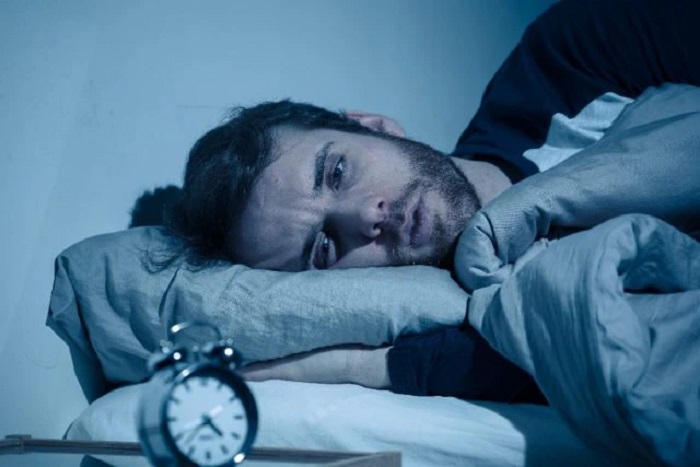2 You experience sleep issues
Advertisement
High blood pressure is linked to not being able to sleep well at night. Your blood pressure may go up if you don’t get enough sleep, says Dr. Francisco Lopez-Jimenez. People who sleep less than six hours may see their blood pressure rise more quickly. If you have high blood pressure already, not getting enough sleep may make it worse. Reducing high blood pressure will definitely help you sleep better at night.

Img Src: feednews.com
3 You experience extreme stress
Advertisement
Stress can result in high blood pressure if you don’t deal with it on time. Managing stress is 70% about how you live and 30% about what you eat, says Luke Laffin, MD, a preventive cardiologist. He explains, “I always talk to patients about the impact of sleep on heart health and how stress impacts sleep. If stress and anxiety are leading to a lot of blood pressure elevation, we can try medications called beta-blockers. They’re not the first line of treatment for blood pressure in most people, but they can be helpful for people with significant stress and anxiety because they decrease your sympathetic nervous system activity and slow down your heart rate in stressful situations.”

Img Src: mariefrance.fr
4 You have problems with your vision
Advertisement
Experts say that if you experience trouble seeing, then it could be a sign of high blood pressure. Dr. William White, an optometrist with Baylor Scott & White Health in Temple, Texas, says that changes can be caused by diabetes or high blood pressure that affects the blood vessels. The blood vessels in the retina can stiffen and harden over time. They’ll cross and push against each other like two hoses in a small space. When things get really bad, some of the blood vessels will start leaking, resulting in some bleeding and leading to various eye problems. To avoid vision problems, it would be best to reduce high blood pressure.

Img Src: eatthis.com
5 You find it difficult to breathe properly sometimes
Advertisement
High blood pressure could cause breathing difficulties. Vallerie McLaughlin, MD, director of the Pulmonary Hypertension Program at the University of Michigan Frankel Cardiovascular Center, identified the most common sign of pulmonary hypertension. When the right side of the heart is having trouble pushing blood through the lungs, so blood can’t get to the left side of the heart and the rest of the body, that’s when it becomes hard for you to breathe properly. It puts stress on the right side of the heart, which isn’t used to pushing against the high pressure.

Img Src: alazaheer.net